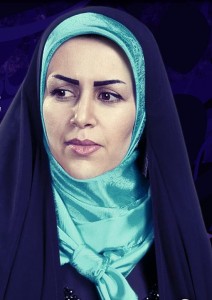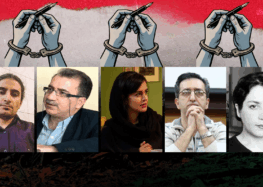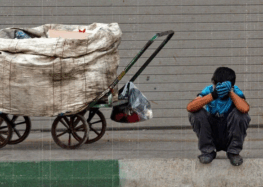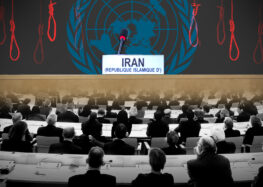City Council Spokeswoman Relieved of Duties for Using Facebook
Azam Sadat Hosseini, Spokesperson for the coastal city of Behshahr’s City Council in Mazandaran Province in Iran, has been removed from her position because of her participation in the social network Facebook, officially banned in Iran but used by several Iranian officials, including the president, Supreme Leader, and foreign minister. Since her election to the Behshahr City Council last summer, Azam Sadat Hosseini had been making entries on her Facebook page, and after taking office in September, she had written several entries in which she provided summaries of the discussions and decisions of the City Council meetings.
Announcing the news on her Facebook page yesterday, she wrote, “A member of the Council whose brilliant past records are known to all states my presence on Facebook as a reason for this decision. Really, what is the reason for all this fear and apprehension? Is it because I speak with my friends transparently and frankly? Is it because, according to the teachings of the Great Leader of the Revolution [Imam Khomeini], I consider the people to be my benefactors? Because I trust them to manage the city’s affairs? Also, are we above [Foreign Minister] Dr. Zarif? Dr. Zarif shared the results of the P5+1 agreement on his Facebook page before it was published on any news agency or website. It appears the gentlemen have not yet read the fatwa issued by the Supreme Leader, for they have acted so hurriedly.” Azam Sadat Hosseini, 35, a botanist and a former academic administrator at Azad University in Behshahr, serves on the City Council of Behshahr, population 84,000.
While accessing Facebook and Twitter is blocked by the authorities and ordinary Iranians are not allowed to use it, top government officials, including the Supreme Leader himself and many other cabinet members, including Foreign Minister Mohammad Javad Zarif, use Facebook and Twitter to reach their audiences.
Public access to Facebook and Twitter was blocked in 2009, following the disputed presidential election and the subsequent public protests, when social networks were deemed “enemy tools” for harming the Islamic regime. Since then, Iranians access the popular websites by using special software to go around the blocking filters.
Azam Sadat Hosseini’s latest entry on her Facebook page states sarcastically, “As you know, the people of Behshahr are not entitled to advancement and a good life in their town, and must not be informed about the decisions made by the City Council. Investment projects and a good life are for big cities and a town like Behshahr must be managed like a narrow-minded village, and its people must regress on a daily basis. Therefore, because a City Council member’s dissemination of information is an obstacle in our efforts to achieve this, this is a cause of disappointment to us. All in favor, raise your hands!”







